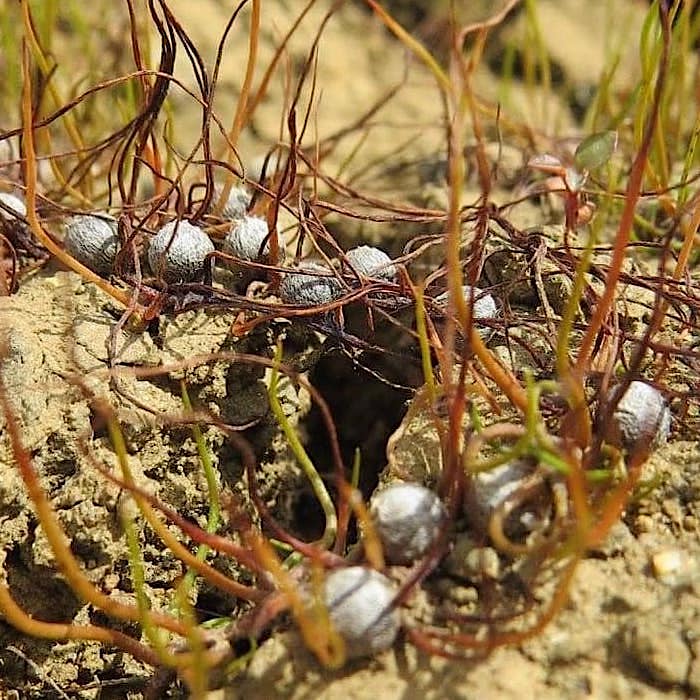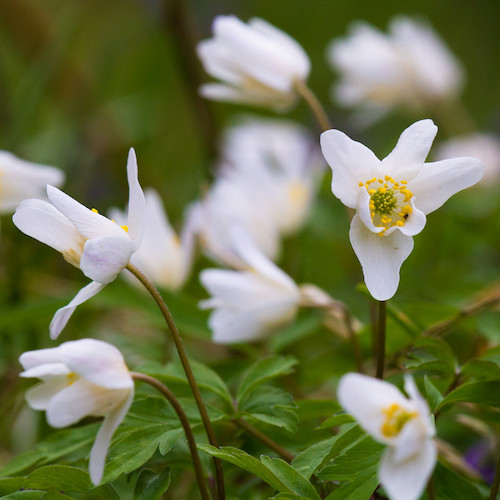Category: Flora
-

Pillwort
Look out for the rare, small fern Pillwort, which has benefited from conservation work on The Lizard. Ruan Pool on Windmill Farm is a good place to search. Photo: Steve […]
-

Sea-holly
Insect pollinators love the spiky blue flowers of Sea-holly. Loe Bar is a wonderful place to spot this lovely plant. Photo: Amanda Scott
-

Harebell
Nodding Harebell flowers start to blossom on the Lizard from July, taking over from Sheep’s-bit as it begins to fade. Photo: janetgraham84new, CC BY 2.0, via Wikimedia Commons
-

Dyer’s Greenweed
The yellow flowers of Dyer’s Greenweed can be seen on the Lizard from June to August. The cliffs near Kynance Farm are a good place to look. Photo: © Natural […]
-

Wild Thyme
Wild Thyme is in full bloom on The Lizard in July. Photo: Amanda Scott
-

Hottentot-fig
The bright pink and yellow flowers of Hottentot-fig look cheerful on sea cliffs in the summer, but this is an introduced and invasive species. Photo: Phil Sellens (Wikimedia Commons)
-

Subterranean Clover
Lizard ‘clover season’ is from spring to early summer. One to look out for is the small and unassuming Subterranean Clover, found on shallow soils or amongst short turf close […]
-

Wild Chives
Lovely Chives can be found flowering from May to July. Mullion Cliffs is a good place to spot them. Photo: © Natural England/Neil Pike
-

Early-purple Orchid
Early-purple Orchids enjoy the serpentine soils of the Lizard. Photo: © Natural England/Allan Drewitt
-

Opposite-leaved Golden-saxifrage
Opposite-leaved Golden-saxifrage is a low, spreading plant that lights up damp shady places with a golden glow in spring. Photo: Steve Townsend
-

Wood Anemone
Also known as Windflower, the Wood Anemone is a flower of early spring, found in woodland glades and old hedgerows.Photo: © Natural England/Allan Drewitt
-

Lesser Celandine
The bright buttery glint of Lesser Celandine in the hedgerows and fields is a welcome early sign of spring. Photo: Amanda Scott
-

Three-lobed Crowfoot
This speciality of muddy tracks and ruts on The Lizard starts to show its delicate, tiny white flowers in February and March. Photo: Amanda Scott
-

Dog’s Mercury
Found mainly in woodlands and hedgerows, Dog’s Mercury is far from showy, but is distinguished by being one of the earlier plants to flower each year. Photo: Krzysztof Ziarnek, Kenraiz, […]
-

Land Quillwort
Look out for the ‘Catherine Wheel’ leaf rosettes of Land Quillwort between autumn and spring, a plant that, in mainland Britain, is only found on The Lizard. Photo: Steve Townsend
-

Winter Heliotrope
This winter-flowering, vanilla-scented plant of waste places and roadsides is not native to Britain, but is a valuable source of nectar for emerging insects in the earliest days of spring. […]
